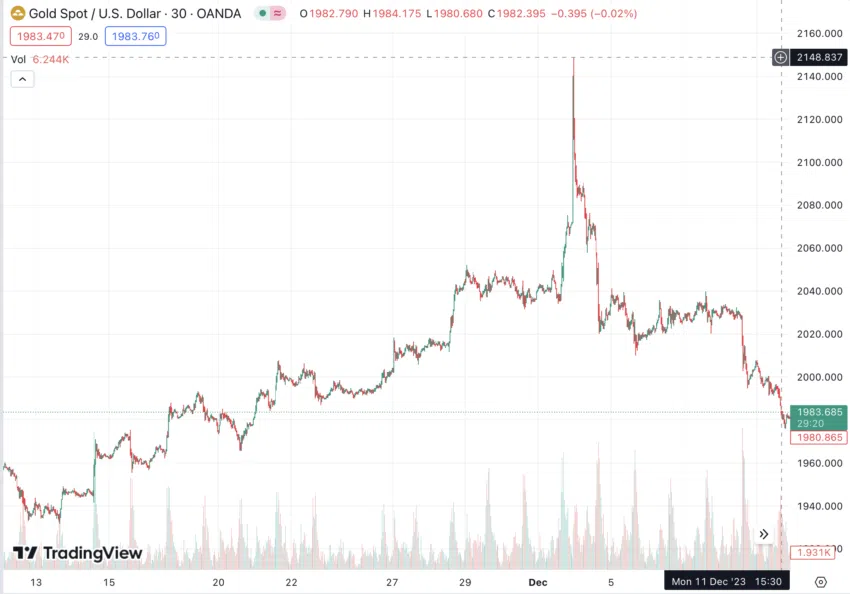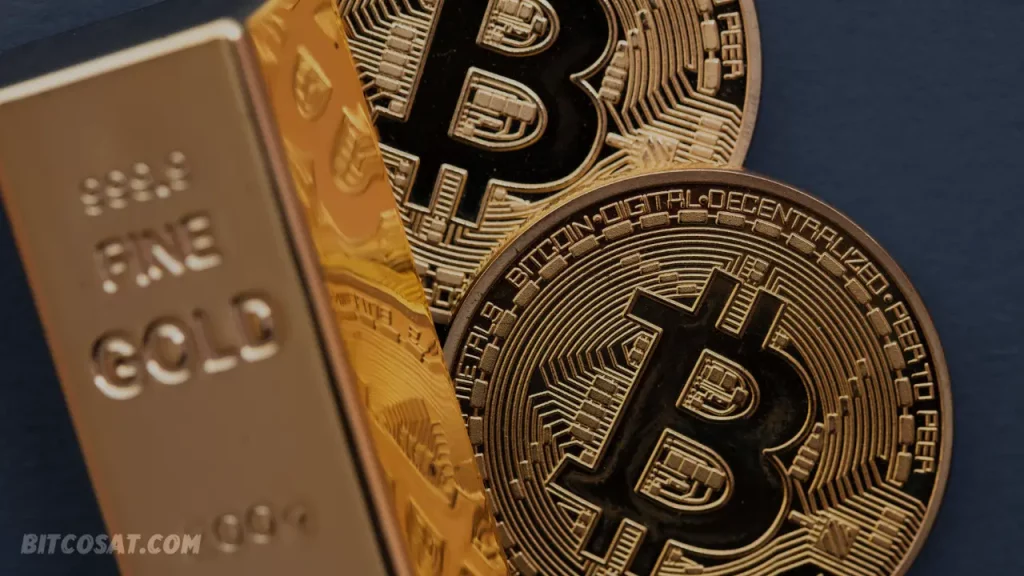Whenever there is talk of a recession, comparisons between gold and BTC inevitably arise. Especially in light of potential approvals for a Bitcoin exchange-traded fund (Bitcoin ETF).
While most mainstream media talk about a soft landing, some institutions and experts insist that the picture is not so rosy.
Investment manager VanEck expects the US economy to enter a recession in the first quarter, long before many pundits believe the Fed will start cutting interest rates.
The broader slowdown in commodities and employment, struggling retail stocks, and a steeper inverted yield curve point to an impending slowdown in growth.
Macro conditions will improve the price of gold
According to Joseph Cavatoni of the World Gold Council, gold will thrive amid market risks and uncertainty.
More and more central banks are working to diversify their economies away from the US dollar and towards gold. Which may increase demand soon. Geopolitics also plays an increasing role.
Investors are paying more attention to gold because they do not want to be surprised in 2024.
Joseph Cavatoni of the World Gold Council.

While gold’s technical indicators have declined recently, Cavatoni expects the asset’s performance to be shaped more by the macro economy in the coming months.
Last week, the asset touched an all-time high of $2,150 per ounce. But sellers pushed it down again.
If it stabilizes, it could break the $1990 and $2010 levels. But if more selling occurs, the price could fall below the 200-day SMA of $1,950 and drop to $1,930.
Bitcoin may resist the effects of recession
VanEck predicts that exchange-traded fund (ETF) approvals will support the price of Bitcoin until 2024.
In the absence of significant volatility, the asset is unlikely to fall below $30,000 in the first quarter and could form a vital part of investment portfolios.
The financial company expects inflows of $2.4 billion in the quarter and assets to steal market share from gold even as US voters become aware of currency devaluation through money printing.
ETFs may see inflows of up to $40.4 billion in the first two years of their listing.
So, in short, Bitcoin ETF approvals may conflict with Fed money printing in the event of a recession.
Cavatoni said gold could benefit from interest rate cuts if the US economy faces a sharp downturn and central banks choose to hold assets above the US dollar.
Today is the first day of the US Federal Reserve meeting, which market participants are eagerly awaiting. The Fed will decide how to adjust interest rates to bring inflation down to 2%.
